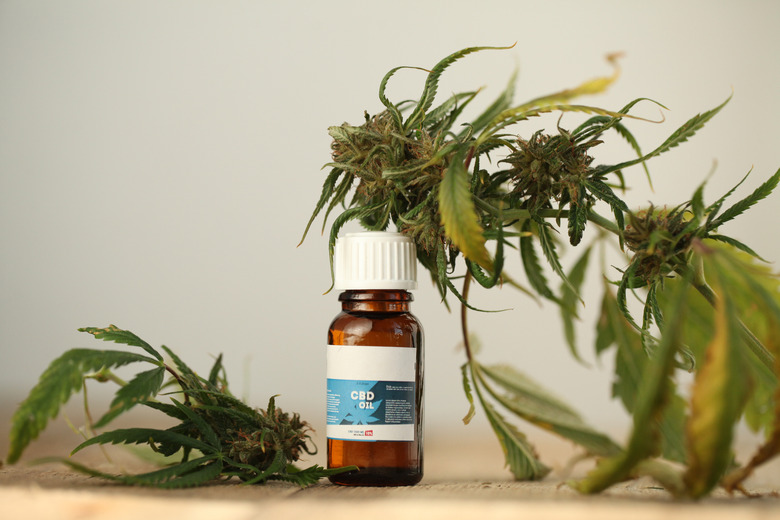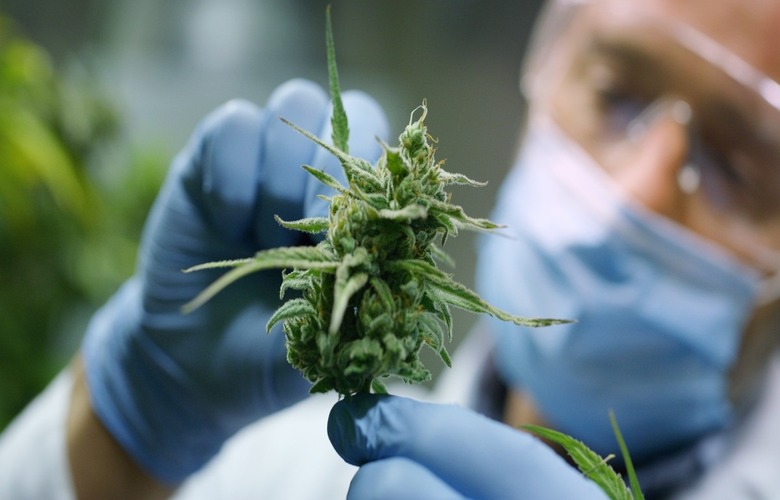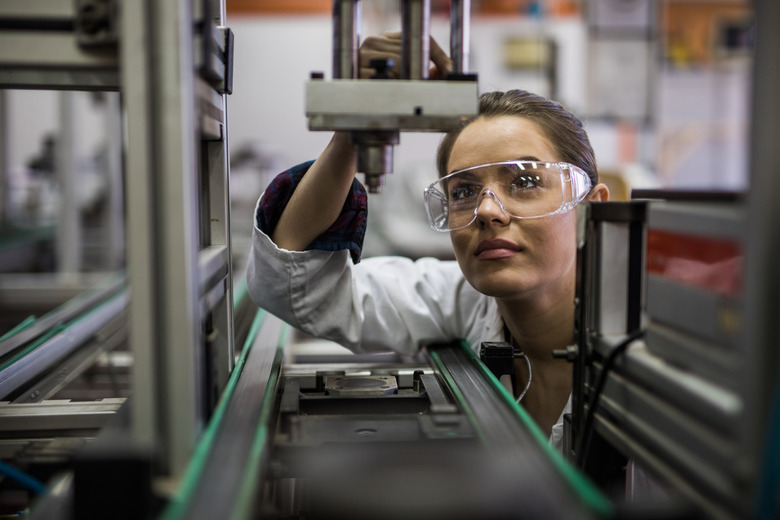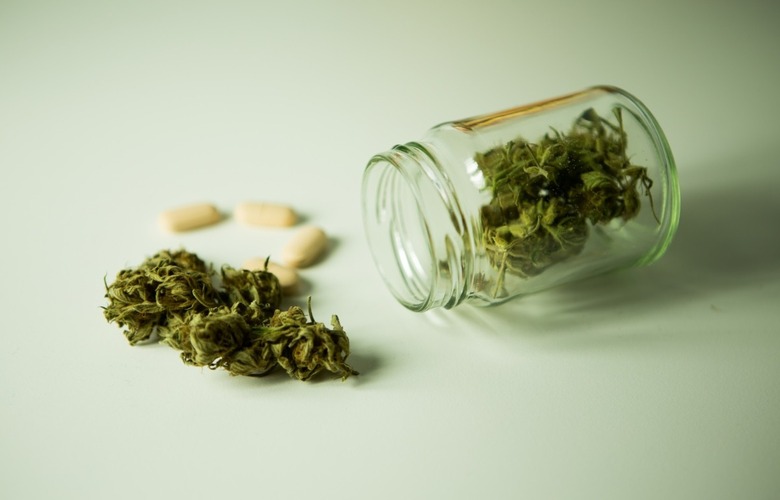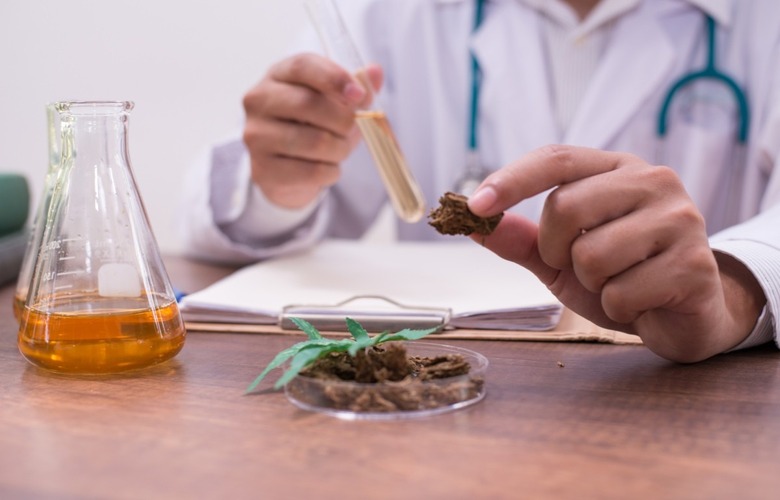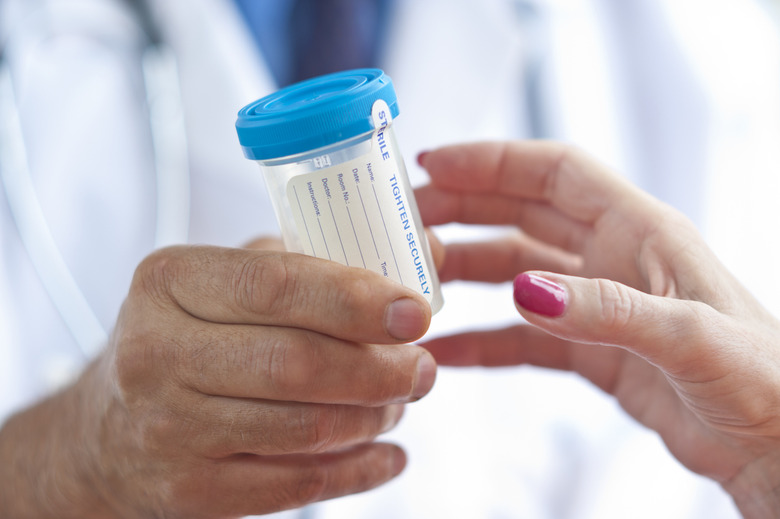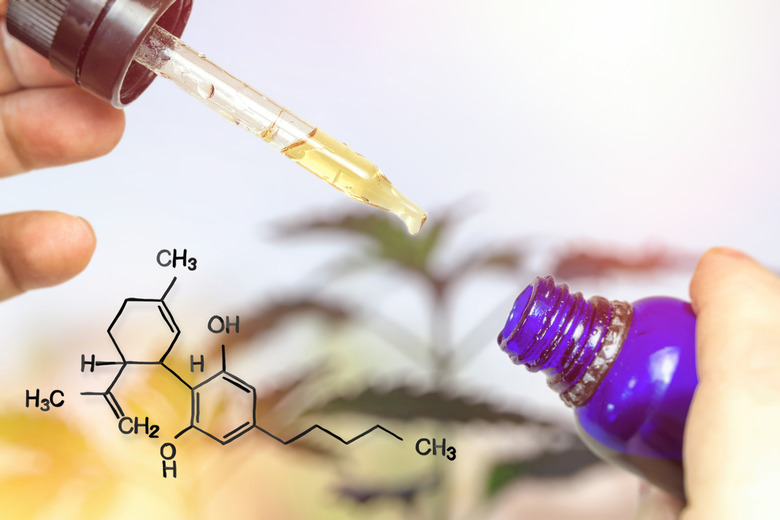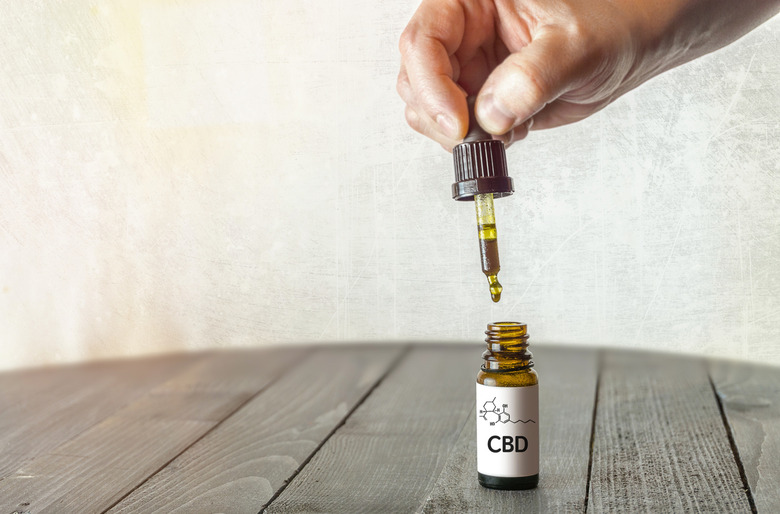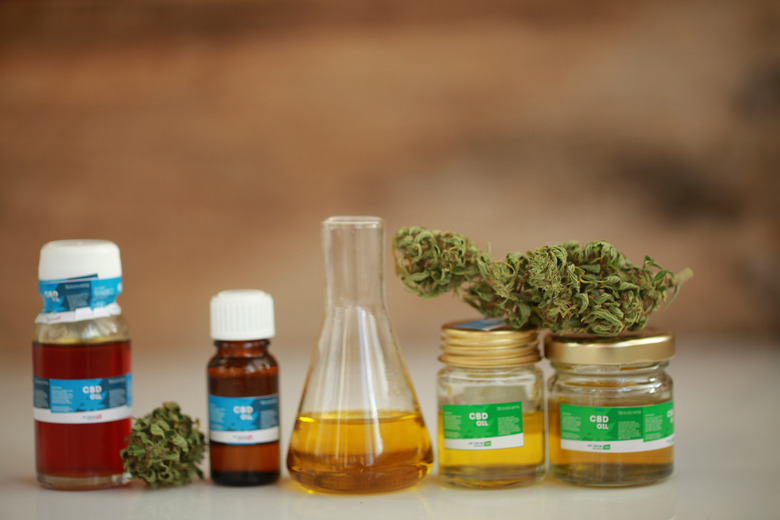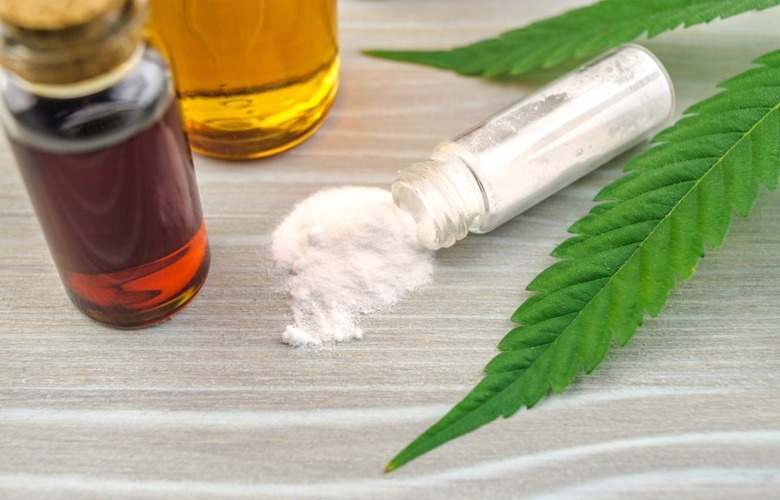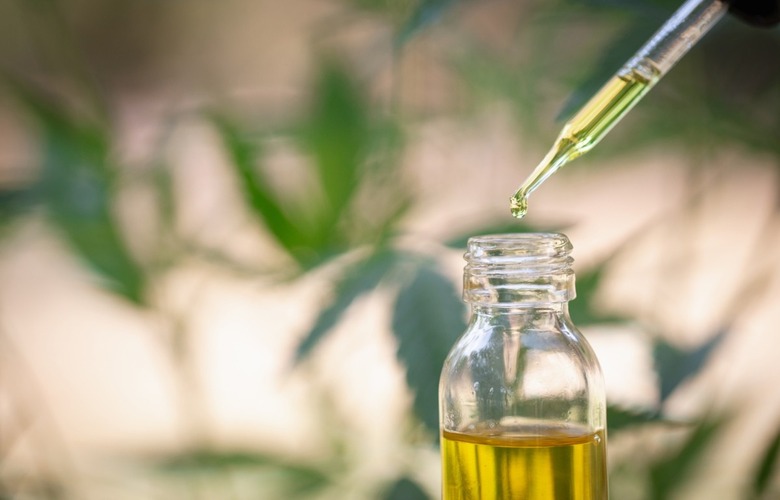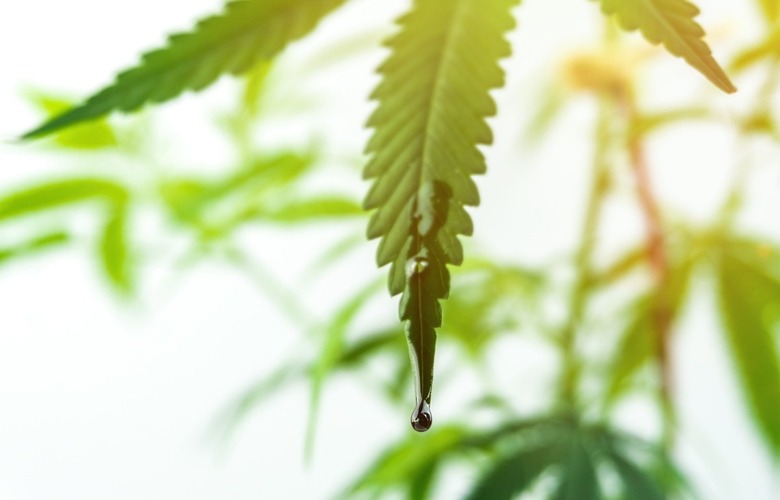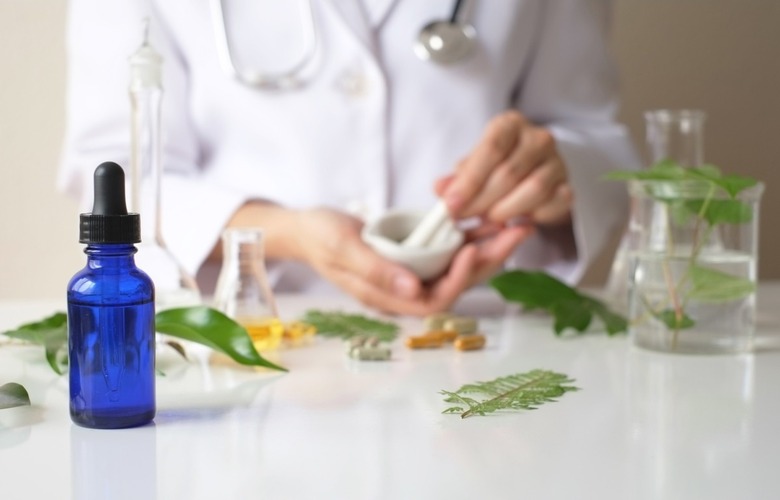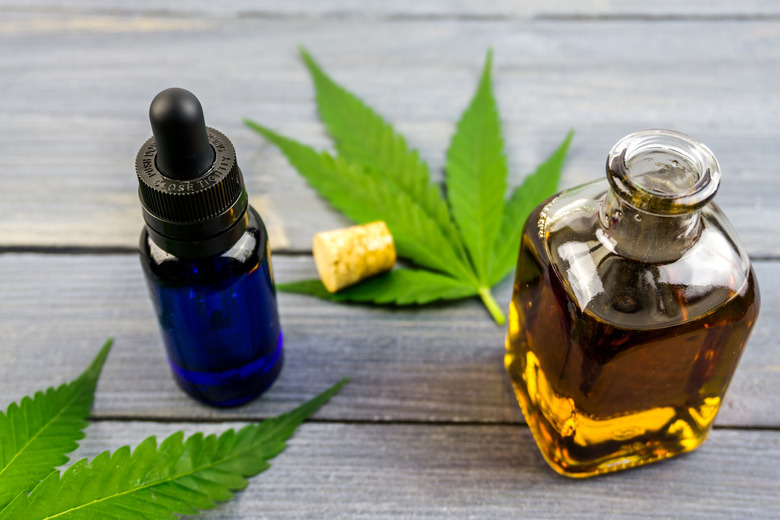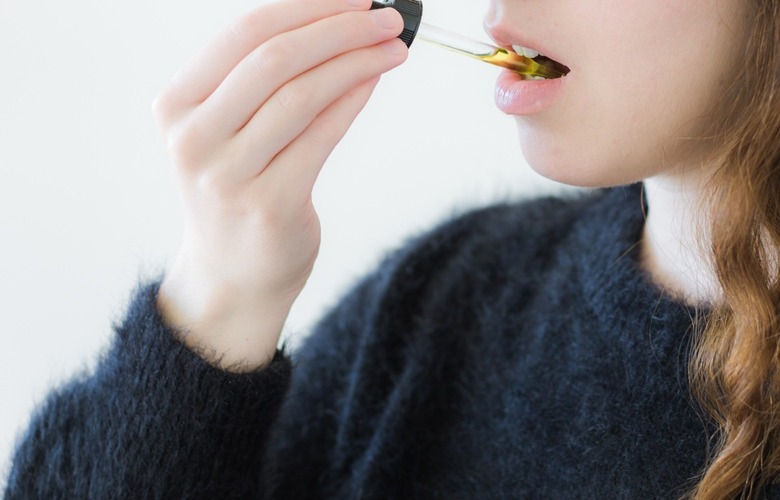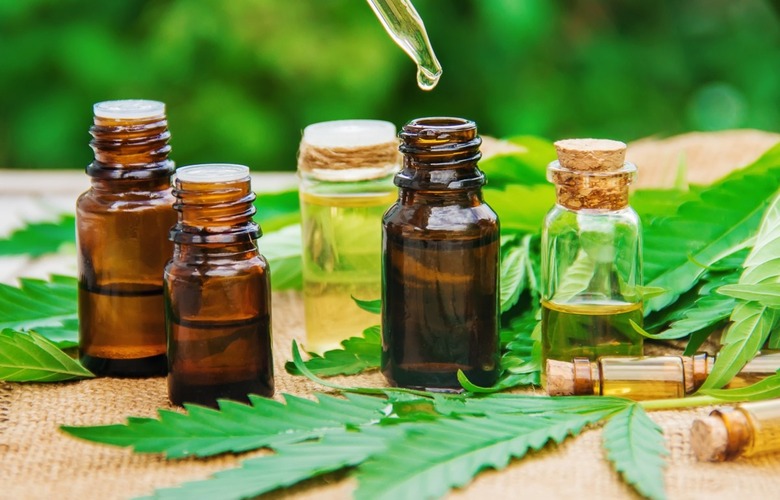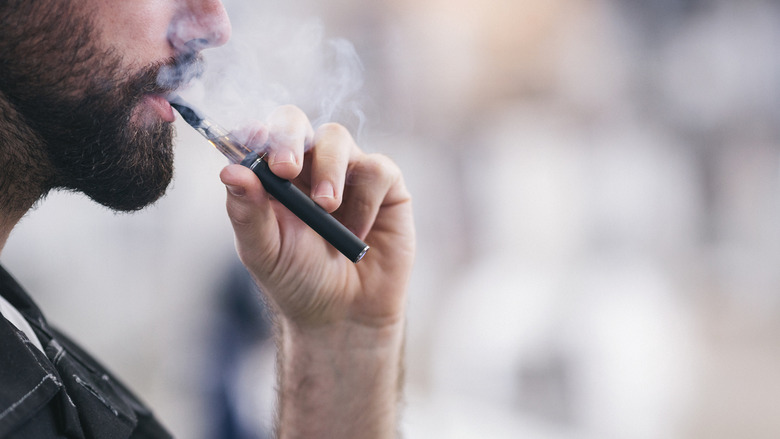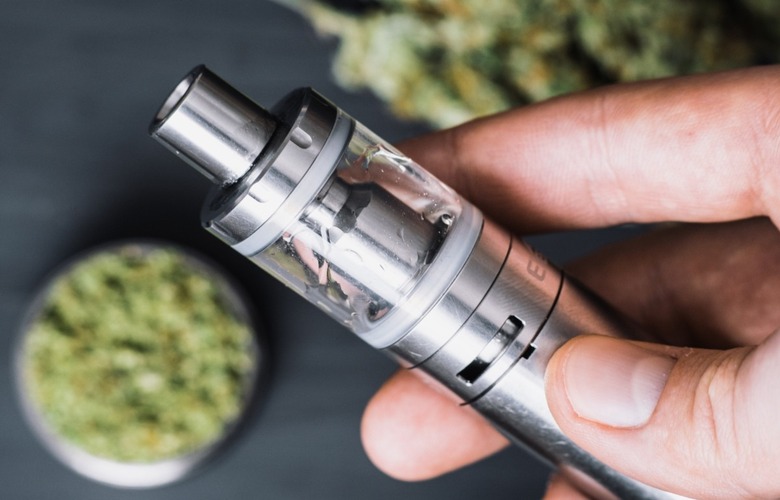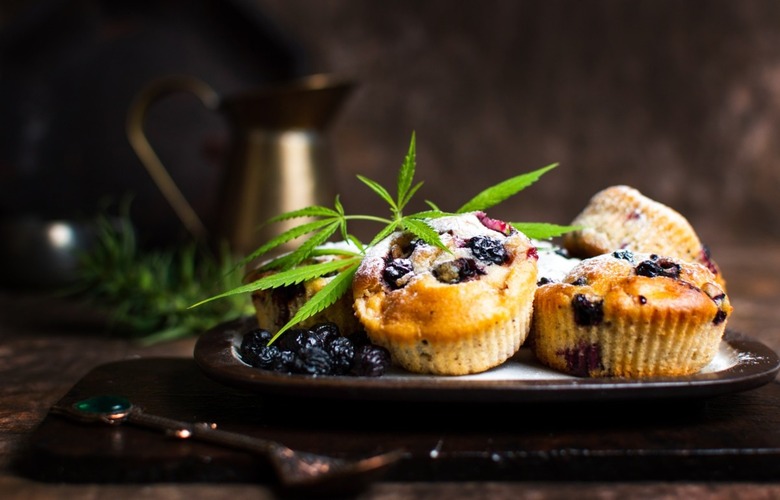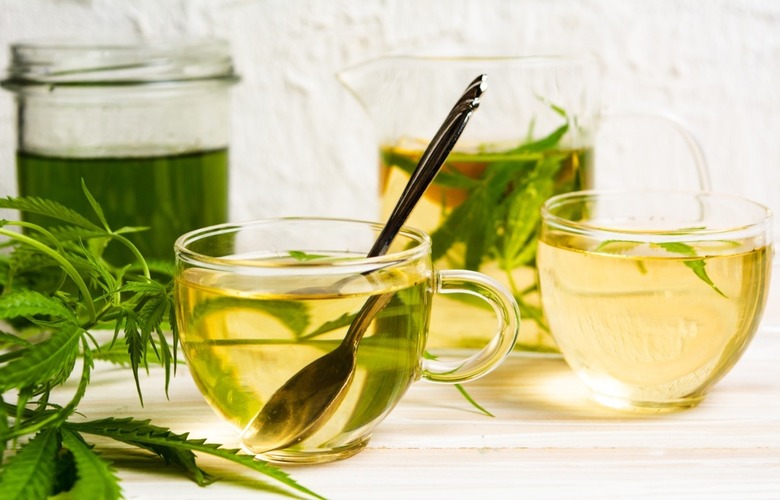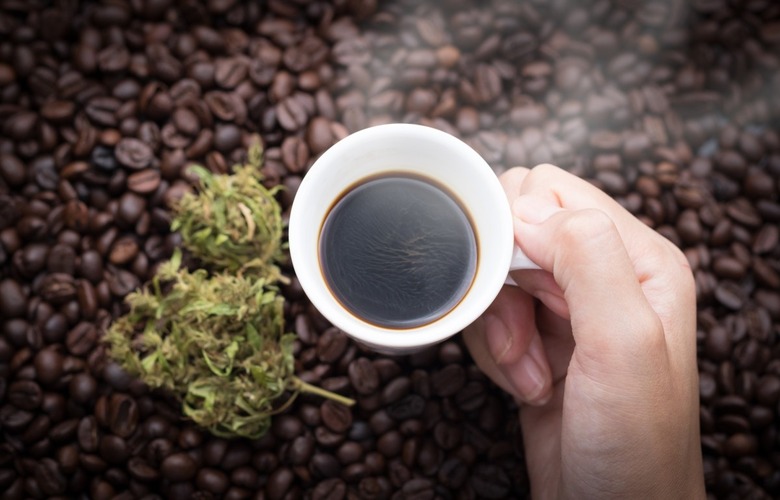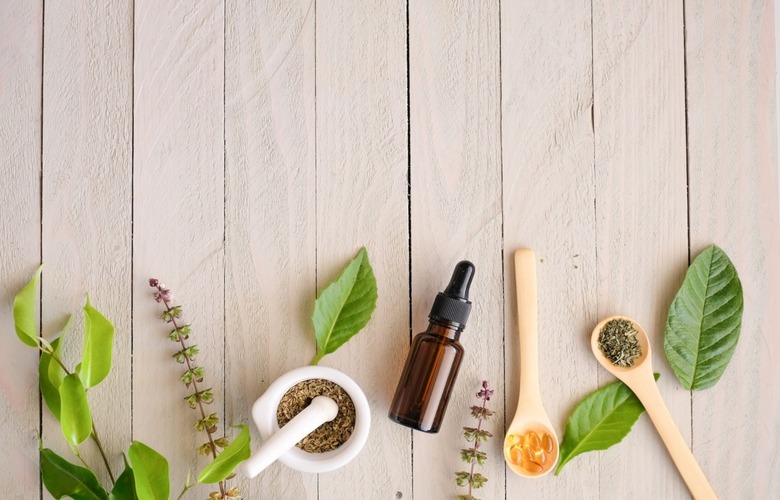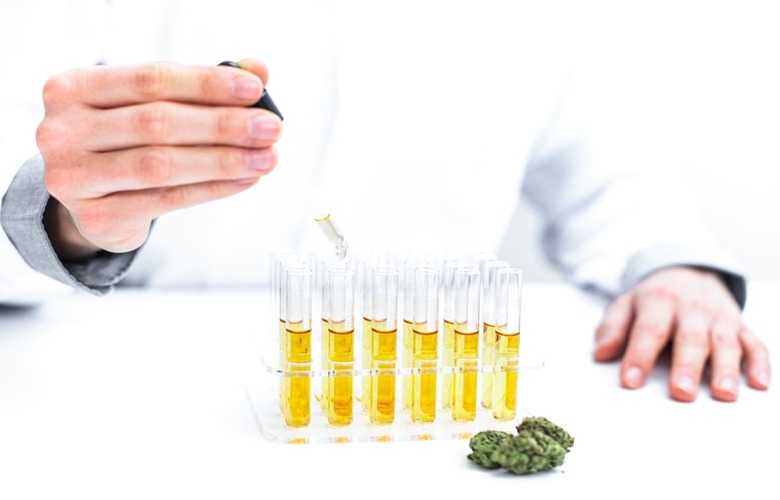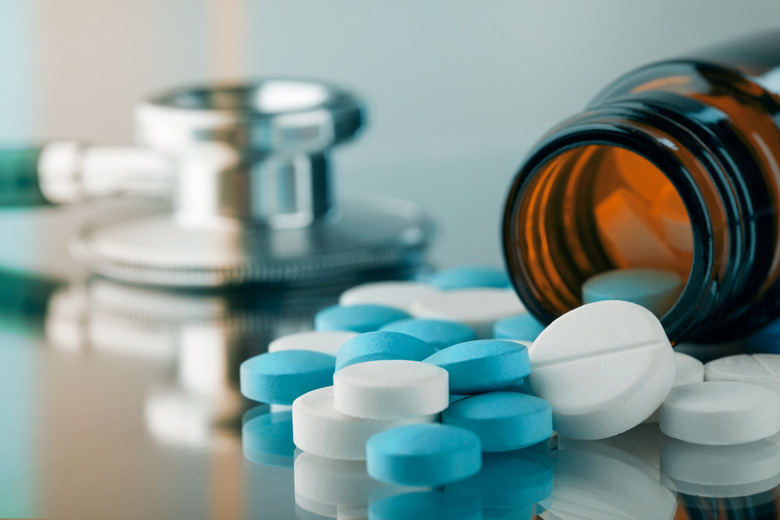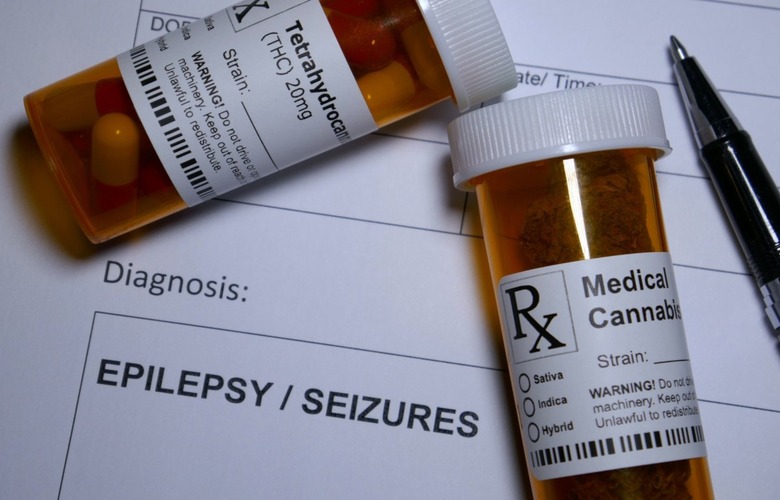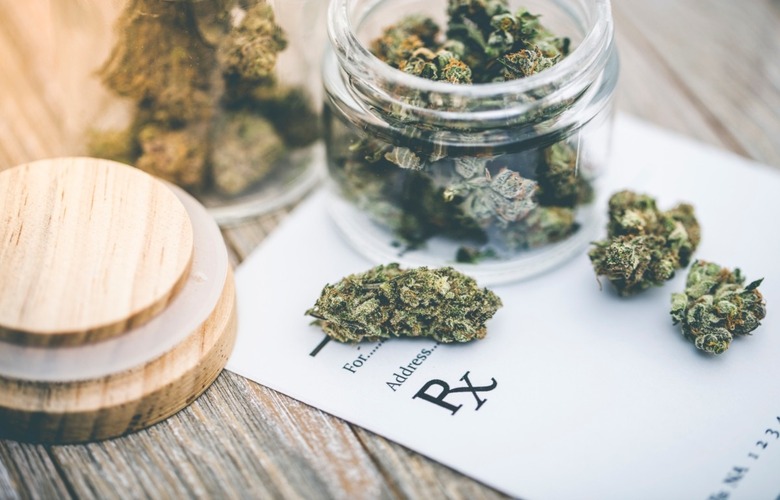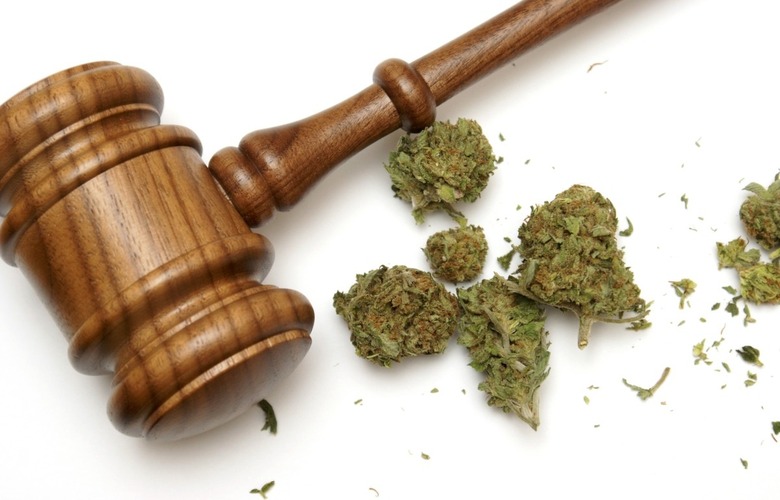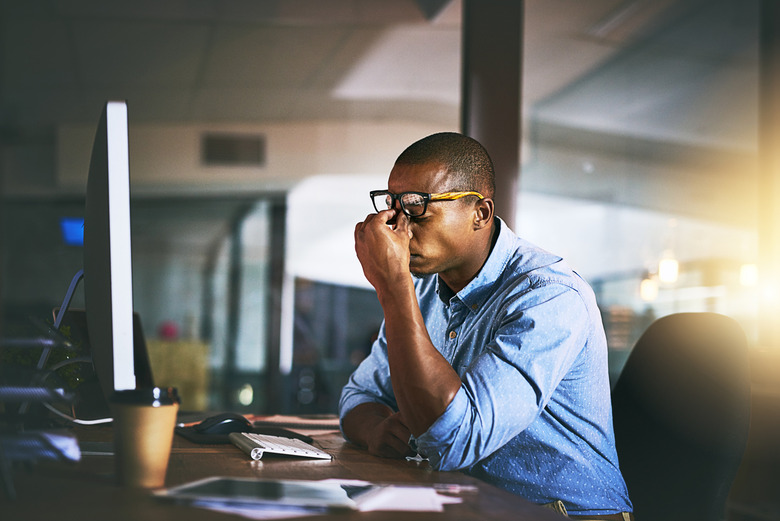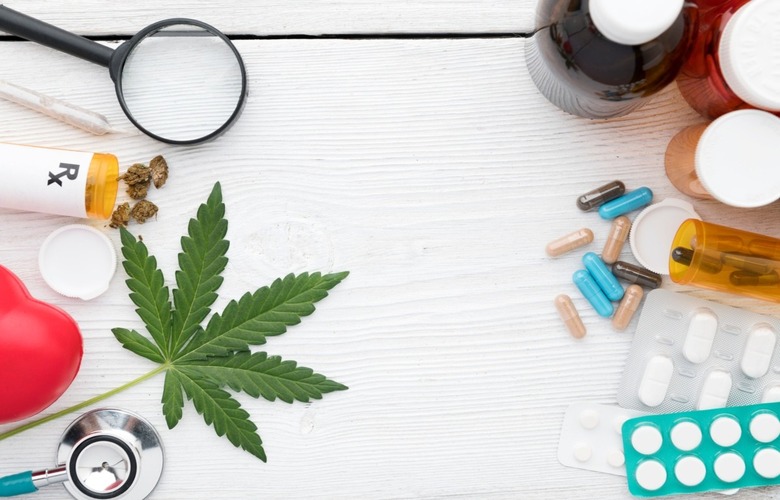32 Things You Need To Know About CBD Before You Try It
Unless you live under a rock, you've heard of CBD. Everyone and their mother is trying it, likely in search of the promised benefits of anxiety relief, better sleep and calming inflammation. Some health claims have gotten out of hand — CBD cannot, for instance, save you from cancer — and the buzz around the substance seems to be growing. More hemp plants are being grown, too, fueling the industry surrounding this hemp-derived compound.
Why is everyone so obsessed with CBD? It helps that the substance just sounds cool. CBD's appeal is bolstered by its adaptability to some trend-forward products: vape pens, vegan cupcakes and coconut sugar-sweetened lattes, to name a few. And besides grasping at food trends, CBD has found its way into non-edible wellness trends as well, including essential oils, soaps and spa treatments.
For many, taking CBD has some of marijuana's cool-factor — only CBD is actually available everywhere. Many believe that it's legal everywhere, too, and that it's safer. But that may not be true. In fact, there's a lot about this substance that consumers don't know. Before you decide to incorporate CBD into your wellness routine, here's everything you need to know about the substance.
CBD is just one compound
CBD is an abbreviation that refers to cannabidiol, one of 113 cannabinoid compounds that have been discovered in the cannabis plant. Products such as CBD supplements and oils contain concentrated versions of cannabidiol. Research suggests that CBD may have an effect on the body. However, many claims about the compound have yet to be backed by sufficient bodies of research.
CBD affects your body and your brain
Other types of cannabinoid are produced in your body naturally already. These compounds interact with two specific chemical receptors: CB1 receptors, which are largely concentrated in the central nervous system, and CB2 receptors, which are less prevalent in the brain but more common in tissues of the immune and digestive systems. CBD appears to influence these receptors to attach to more of the body's natural cannabinoids, though research on the exact mechanism is still a little hazy. These compounds are different from CBD, and CBD itself does not appear to attach to either receptor.
CBD has links to inflammation
These two receptors, CB1 and CB2, are related to certain inflammatory responses in the body. Some research suggests that whatever happens between CBD and these receptors helps to modulate inflammation, and this appears to be particularly true after a trauma. Inflammation can be triggered by any number of things — eating certain foods, drinking too much alcohol, or experiencing emotional stress, for example — and it is a symptom of a number of serious health issues. For this reason, many have touted CBD as a miracle drug that can help to prevent disease. However, there is little to no research on humans to support claims about specific diseases. "Technically speaking, no CBD product can make a legal health claim," says David Cunic, licensed physical therapist and cannabis industry expert at USC Advisor. "They might give suggestions or say it 'might help,' but they cannot make any certified claims. If any CBD product makes any guarantees or definitive health claims, then I recommend staying away from it."
Many people turn to CBD to treat anxiety
One of the more popular claims about CBD is that it can help tame anxiety. Anecdotal accounts swear that it works, and there is some preliminary research showing that CBD has potential for mitigating symptoms. The key word here is preliminary — more research is needed before any advice to take it can be considered science-backed or trustworthy.
Some caveats: Doctors have long warned against people with anxiety ingesting THC, as it could trigger paranoia or panic. More on this later, but some CBD products on the market do contain THC. Using a purer form of CBD that doesn't have THC may be advisable for those with an anxiety disorder. It's also worth noting that anxiety is a psychological condition that should be diagnosed and treated with the aid of a health professional. Taking mental health treatment into your own hands — and relying on substances to do so — is not advised.
CBD can’t get you high
CBD is very different from THC, another compound found in cannabis, and its effects are also different. THC is the key active ingredient in marijuana and it possesses the psychoactive properties of the drug. In other words, THC makes you feel high — but CBD does not possess these psychoactive properties. However, if a CBD-infused product also contains THC, the product may be psychoactive.
CBD products could be hiding THC
How can you tell whether or not there's THC in your CBD product? Well, in theory there shouldn't be very much. According to a review published in the journal Epilepsy & Behavior and a release by the FDA, federal law restricts producers to a concentration of below 0.3 percent THC in a CBD-labeled product. However, research published in JAMA shows that many products far exceed this limit without disclosing on the label. In fact, many of the CBD products tested had enough THC included to intoxicate or impair users — and would have particularly strong effects in children. Since regulatory agencies are struggling to keep up with the booming market, it's hard to tell for sure whether the THC content in the product you've acquired is as low as the company claims.
CBD products could cause you to fail a drug test
Using CBD products can actually cause you to fail a drug test — not because CBD itself shows up on testing, but because of THC in the product. If a CBD product has more than the mandated level, you could be taking in a level of THC that sends you over the edge.
You really need to check the label
There's a lot to consider when reading the label, but you definitely want to ensure that the levels of CBD and other chemicals are listed. A label from any reputable company will list how much THC remains in the product, or at least state that it is below the 0.3 percent legal limit. "If you're buying a product and they don't even have that on the label, it's a pretty big red flag," says Jake Black, who holds a doctorate in organic chemistry from Yale University and serves as chief scientific officer at Treehouse Hemp. "There are a lot of bad actors out there, unfortunately. There's a lot of confusion about THC levels, the processing and what's actually being done to get that THC level below the legal limit." Research shows that actual levels of THC present in CBD products vary wildly between companies. Black recommends doing more research on your chosen product before you trust what you read.
There’s no exact science to choosing your dose
Since CBD isn't a legal supplement or a doctor-approved prescription, there aren't any real recommended doses. So unfortunately, finding out which dosage is right for you is a messy process of trial and error. "First, research the appropriate dosage ranges," advises Greg Dicum, co-founder of Cultivating Wellness, a CBD from hemp market research and product development firm. "Then try it; if it works, scale back the dose a bit. If it's not working, scale it up. The goal is to find the minimum effective dose and go with that."
Researching appropriate dosage ranges can get tricky, since there's so much conflicting information online. And since there's no medical consensus, CBD suppliers often offer their own recommendations. "I generally encourage my patients to start with between 20 and 50 total milligrams daily in divided doses," says Dr. Peter Swanz, board-certified naturopathic physician and advisory board member of CBD brand Onyx & Rose. "Ten milligrams in the morning, 10 milligrams in the afternoon and 10 milligrams in the evening. We then adjust the dose weekly or every couple of weeks until we reach a dose that is achieving the results we are looking for."
There are 3 main types of CBD
You might have seen the words "full-spectrum," "broad-spectrum," and "isolate" tossed around in relation to CBD. Since the industry is so new, these distinctions are an evolving concept. But generally speaking, these are the three types of concentrated CBD you might see on the market. And it makes kind of a big difference which one you choose.
Isolate is the purest form
"Isolate" in chemistry refers to the purest form of a substance. CBD isolate is concentrated CBD in its purest possible form. There should be no fatty acids, proteins or turpines from the plant in the product. Some isolate products are intentionally diluted by the selling company — so you still need to check the CBD content listed on the label.
Full-spectrum CBD has more compounds involved
Those who swear by full-spectrum CBD are focused on the fact that purifying hemp extract into CBD isolate removes a lot of other plant material — and they claim that this plant material could be good for you to ingest alongside CBD. Black, the organic chemist, compares the concept to eating a vitamin C pill versus eating an orange. There are other nutrients in the orange you might want, as well. "In a full-spectrum extract, in addition to CBD, the product should include other cannabanoids, the turpines from the plant (responsible for the smell of different strains of hemp and cannabis), and some fatty acids or proteins from the plant," Black says. These other compounds are purported to help your body to absorb more of CBD's benefits or produce other positive effects in the body. "It's been shown that the medicinal effects of full-spectrum products are not equal to the medicinal effects of pure CBD," Black says.
There’s no agreed-upon meaning of the word ‘full-spectrum’
While "full-spectrum" is a widely-used term, it's become problematic. "There's not really an accepted definition or legal definition of what the word 'full-spectrum' means," Black says. "It's come to mean whatever your particular part of the internet thinks it is. You can read 100 different blog posts with 100 different definitions." For some sellers, in order to qualify something as full-spectrum the plant itself must remain intact. Other people believe that if they add certain ingredients, such as MCT oil and separately obtained turpines, to a CBD isolate, it still counts as a full-spectrum extract. Some sellers will even dilute the product heavily in an oil such as coconut oil or MCT oil, failing to list the CBD concentration on the label under the guise of "full-spectrum." This is why it's important for consumers to do their research. The same label may denote wildly different products — and wildly different doses of CBD.
Broad-spectrum is a middle ground between the two
Broad-spectrum CBD is a blend of the two concepts, isolate and full-spectrum. As with full-spectrum, there is no widely agreed upon definition. But generally speaking, broad-spectrum CBD products are more likely to have all of the THC removed.
There are different methods of taking CBD
There are a few different methods of incorporating CBD to choose from. An increasing variety of products are being developed by the day, but for now the most popular methods of taking CBD include using a tincture, inhaling CBD products through a vape, using CBD topically, eating CBD-infused foods and drinking water-soluble CBD beverages.
A tincture is most popular
A tincture is any concentrated plant extract mixed with a liquid solvent so that it can be administered in a precise dose using a dropper. Many people opt to use a tincture to drop small doses of CBD oil directly into the mouth below their tongue, though others opt to use it to drop CBD oil on other food items. You could even drop a bit of CBD on top of a slice of toast or into your coffee. Since this allows the consumer to avoid smoking anything and to have greater control over the dosage, this method tends to be more popular.
Using a tincture can have side effects
According to the National Institutes of Health, some reported side effects of using a tincture under the tongue include dry mouth, low blood pressure, light headedness, drowsiness and (in rare cases) signs of liver injury. Additionally, you want to check that the ingredients in the CBD oil you use aren't harmful. "If the CBD product that you are using has anything else in the ingredients other than possibly some natural flavoring, then you should probably look for a different type of CBD product," says Cunic, the physical therapist. "You want to make sure the CBD you use is a quality-grade product which contains no added chemicals, thinning agents, heavy metals, pesticides or fertilizers."
There are benefits to using a tincture
This method is one of the more popular ones for a few other reasons, as well. Since those who use a tincture often use a purer form of CBD, this can minimize risk of exposure to other compounds. Additionally, applying the CBD oil below the tongue allows it to be quickly absorbed through the skin. "Kind of like chewing tobacco or something like that, anecdotally the effect is much quicker than if it were to go through the digestive system," Black explains.
You can inhale CBD with a vape pen
Some opt to inhale CBD through a vape pen or other device. The smoked and inhaled solutions are made with CBD extract mixed with some type of solute. Since CBD is not able to dissolve in water, there aren't water-based solutions for these vapes. Rather, these solutions are made by mixing CBD with another substance such as propylene glycol, MCT oil or polyethylene glycol.
There are some hidden dangers of vaping
While vaping CBD is perceived as a healthier alternative to smoking, it could still pose serious health risks because of other chemicals. According to the Agency for Toxic Substances and Disease Registry, propylene glycol does not have any known serious adverse effects, but some evidence suggests that propylene glycol may break down small amounts of dangerous compounds at higher temperatures. Other vaping solutions are made with MCT oil or polyethylene glycol, both of which studies have shown may produce acetaldehyde, a known carcinogen.
There is another serious threat to be considered: contamination with other substances. Since these products are so unregulated, it's hard to be sure what compounds are used. The U.S. Army and North Carolina health officials both issued public warnings in 2018 against vaping CBD in response to 90 patients who reported serious side effects. These side effects included hallucinations, heart irregularities, nausea, vomiting, confusion and even loss of consciousness. Long story short: Smoking these things can be bad for you. And above all, make sure you know what's in the thing you're smoking!
There are some perceived benefits of vaping
Vaping or smoking CBD results in a quicker onset of its effects, since the substance goes directly into your lungs and enters your bloodstream from there. However, the effects also disappear more quickly. There are hopes in the medical community that CBD vaping can help those who wish to quit smoking. A study published in the journal Addictive Behaviors found that while those who used a placebo inhaler smoked the same number of cigarettes throughout the study, those who inhaled CBD reduced the number of cigarettes smoked by around 40 percent. However, these findings are preliminary, meaning more research is needed before this method of quitting tobacco can be safely recommended.
CBD-infused foods are becoming popular
Many cafes and small stores sell trendy treats and drinks they say are infused with CBD. CBD-infused lattes and baked goods are becoming increasingly popular, promising health benefits such as reduced anxiety and inflammation. Shipping these products across state lines is actually illegal — though, many companies do so anyway. The legal arena is pretty hazy around small cafes and local establishments selling CBD-infused foods and beverages in-house. Particular regulations on CBD vary by state and there isn't much enforcement of these regulations at the moment. However, these regulations are becoming stricter by the day. The Los Angeles County Department of Public Health announced that selling CBD-infused foods will cost businesses points on their health inspection. And according to a report by The New York Times, New York City, Maine and Ohio have all started to crack down and even confiscate CBD-infused foods.
Water-soluble CBD beverages also exist
You may have seen beverages that claim to contain CBD. "CBD extract by itself is insoluble in water. It would be like pouring olive oil in water — it just completely separates and will never mix," Black says. "But you can add substances such as surfactants that can blend the CBD with water more effectively." With these products, you can either add the CBD to your own beverage (like you might do with a packet of powdered lemonade) or purchase a beverage with the CBD already added.
CBD affects you differently if you eat or drink it
If you choose to ingest a food or drink infused with CBD, it will take longer for the substance to take effect than it would if you used a tincture or inhaled it. This is because the CBD must pass through and be absorbed through your digestive tract. Though it takes longer to become active, it will also have a longer and slower effect.
You can use CBD topically for pain management
Some skincare products, lotions or spa treatments administer CBD by applying it directly to the skin. Though there is preliminary evidence that it may help with pain management for conditions such as arthritis, there is a need for more research to decide whether these treatments are effective. Others opt to use CBD to treat headaches, muscle pain and skin conditions such as psoriasis.
You should always request a certificate of analysis
A certificate of analysis is lab-tested proof that a company is taking measures to ensure their product is safe and authentic. A certificate of analysis will tell whether the product has residual solvents, pesticides, heavy metals and a CBD content that aligns with the numbers printed on the label. It's best that these tests are performed by a third-party laboratory, rather than the company's own labs. "Because the FDA is not really regulating CBD right now, you can start a company and get away with selling something misleading until you get in trouble," Black says. "Reputable companies are generally very willing to show you their certificate of analysis." You can find these certificates online or through a barcode printed on the product that you can scan using your phone.
CBD might interact with medications
Like certain foods, CBD could interact with some medications. "CBD impacts the liver and the body's ability to process and detoxify from chemicals, including many pharmaceutical drugs," says Swanz, the naturopath. "This is particularly important for anyone taking medications such as blood thinners, anti-seizure medications and any medication related to the transplant of a new organ or tissue." According to the National Institutes of Health, CBD may significantly impact the way many common medications are processed by the body, including drugs such as antidepressants, hormonal therapies, antianxiety medication and migraine medication. Some drugs are more dangerous to combine with CBD than others, so make sure you consult the full list. You should also talk to your doctor about your use of CBD.
The FDA has approved CBD to treat epilepsy
Epilepsy is the only disease for which the FDA has approved CBD as a treatment. The agency did so in 2018 after three randomized, double-blind placebo-controlled clinical trials were assessed. Over 500 patients were involved in the studies. The drug Epidiolex, which administers CBD as an oral solution, is the only FDA-approved drug with CBD. It was cleared for children over the age of 2 as a treatment for seizures associated with two rare and severe forms of epilepsy, Lennox-Gastaut syndrome and Dravet syndrome.
CBD is not FDA-approved to treat any other disease or condition
The FDA is very clear that they do not approve CBD as an effective treatment for a disease or condition other than the exception of Epidiolex for epilepsy. "FDA continues to be concerned at the proliferation of products asserting to contain CBD that are marketed for therapeutic or medical uses," the FDA says in a statement. "Selling unapproved products with unsubstantiated therapeutic claims is not only a violation of the law, but also can put patients at risk."
The FDA has started to crack down on CBD products
The CBD industry has expanded without much regulation, and exponentially so in the past couple of years. But this trend may soon come to an end. Already the FDA has issued multiple warnings over the past couple of years to companies who violate the law in how they advertise or distribute their products. Some of these products make dozens of medical claims that cannot be supported (such as the effectiveness of CBD in treating illness). Some also administer unregulated levels of the compounds to humans or animals. These unsubstantiated claims are considered both dangerous and misleading by the FDA. The organization plans to hold a conference in May 2019 to address a new approach to CBD regulation.
There are some dangers of CBD use
Contrary to what many believe, there have been reports of negative health consequences associated with CBD. Those who have used CBD as a treatment for a medical condition have reported adverse health effects according to the FDA, but the agency says that additional research is needed, preferably under clinical trials. Additionally, other side effects of CBD have been reported anecdotally including irritability, tiredness, reduced appetite, gastrointestinal distress, rashes, breathing issues, liver problems and worsened mental health issues. More research is needed to investigate whether these somewhat rare side effects are of more serious concern.
It’s illegal to sell CBD as a supplement
Some companies sell CBD as a dietary supplement, sometimes even adding a nutrition label to the package. The FDA has not approved CBD for this purpose, and it's actually illegal to advertise a CBD product as a supplement — partly because it's considered eligible for approval as a drug. The FDA expects to continue barring CBD as an active ingredient in a dietary supplement. Even with supplements that are legal and regulated, these regulations have their problems. If you're looking to add more supplements to your wellness routine, here's a look at everything you need to know before you take one.
More from The Daily Meal:
Hidden Dangers of the Keto Diet
These Foods Can Mess With Your Medication
Breakfast Mistakes You Didn't Know You Were Making
